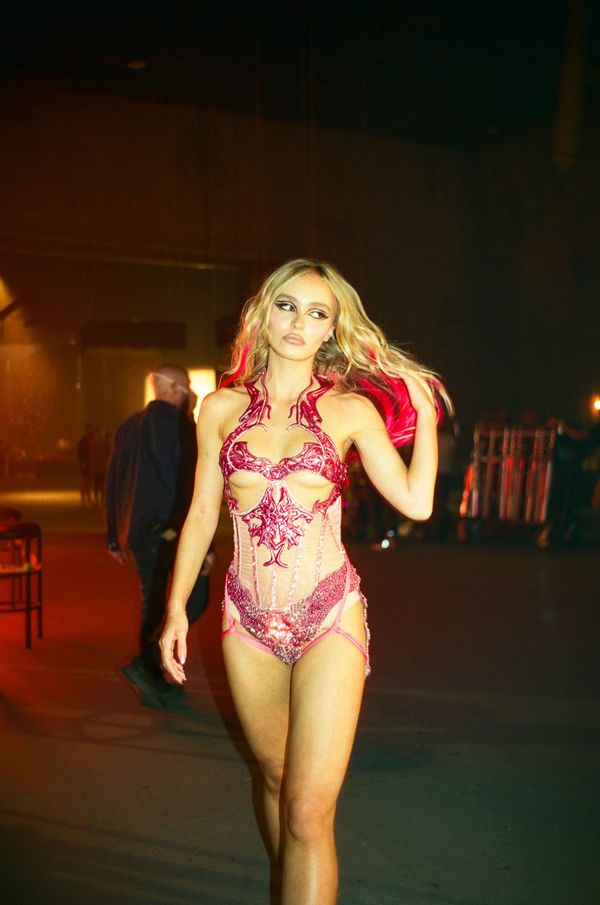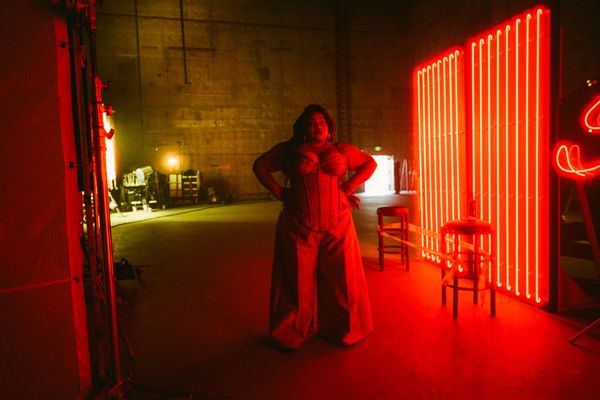“The Idol” tests HBO’s devotion to toxic auteur worship – and ours
If HBO were a cult, it would have to be one of the most successful ones going. What other entity hurls barges of money at certain creators simply because they say they want to make something, then waits for the praiseworthy recruits to shower them with adulation and reverent podcast breakdowns?
The channel’s executives have a long history of doing this, trusting a series of men with oodles of cash simply because they created a hit at some point.
“Euphoria” nightmare weaver Sam Levinson is the latest beneficiary of the premium channel’s largesse, reportedly having set somewhere between $54 million and $75 million on fire in the tortured process of getting his latest show, “The Idol,” into circulation.
According to a March report in Rolling Stone, Levinson, who shares co-creator credit with Abel Tesfaye, aka The Weeknd, stepped in after the series’ first director Amy Seimetz suddenly exited. He scrapped the existing content to start from scratch. The reason? Seimetz injected too much of a “female perspective” for Tesfaye’s tastes.
Other projects contending with a similar level of disarray might employ an editor to go at it with a scalpel, filling in the blanks with reshoots. Not this one. Rolling Stone describes a full overhaul of “The Idol” that included recasting and an entire rewrite, transforming what the story’s sources describe as “a layered narrative that was driving home a message about the trappings and exploitations of fame” into “Euphoria Season Three with pop stars’.”
Forget the scalpel — switchblades are cooler. In the premiere, “Pop Tarts & Rat Tales,” Tesfaye’s character uses one to slice a hole in the lingerie he’s using to suffocate the starlet who has invited him over to her house under the auspices of teaching her how to sing like she knows how to, um, grind. (Prince’s “Darling Nikki” plays moments afterward.) We see this after she’s watched Sharon Stone flirt with Michael Douglas in “Basic Instinct” and are to understand that all of it is foreplay. She wants to be destroyed. How sexy.
If there’s no such thing as bad press, “The Idol” might as well be triumphantly arriving on a litter.
“The Idol” begins with scenes that sell the notion that pop stars like Jocelyn (Lily-Rose Depp) are commodities molded and maintained by their labels with little agency of their own. Jane Adams solidly personifies this concept as record label exec Nikki, who co-signs some of the photo shoot’s worst ideas. Various characters explain, sans empathy, that the death of Jocelyn’s mother has left her emotionally adrift. When someone suggests that photographing Depp’s pop sensation with breasts exposed while wearing a hospital bracelet, suggested to be a remnant of the singer’s recent nervous breakdown, Nikki nonchalantly replies that mental illness is sexy.
Further shaken by a viral selfie of her with semen on her face posted online without her consent — I hated typing that as much as you hate reading it, I assure you — Jocelyn crosses paths with Tesfaye’s charismatic nightclub owner Tedros. For reasons that escape notice, she’s immediately drawn to him. Later he’ll persuade Jocelyn that he’s the one who can lift her out of her creative malaise. What he doesn’t say is that the lever will be his junk.
Her relationship with Tedros quickly turns deranged and controlling, making him less of a mentor and producer than a sadist. But, much like the main character in The Weeknd’s “Can’t Feel My Face,” Jocelyn likes it about as much as she enjoys parading her nipples in public. When her assistant tells her that Tedros is “so rapey,” Jocelyn’s response is, “Yeah, I kinda like that about him.”
 Lily Rose Depp (Photograph by Eddy Chen/HBO)
Lily Rose Depp (Photograph by Eddy Chen/HBO)
HBO did not release review screeners to critics ahead of the first two-episode debut at the Cannes Film Festival. Scanning the horrified anti-ovation that emerged from that screening a week and a half ago, we can see why.
“It makes you wonder if in trying so hard to be transgressive, the show ultimately becomes regressive,” The Hollywood Reporter generously observes in its summary.
“The double-dose the festival screened felt nasty, brutish, much longer than it is, and way, way worse than you’d have anticipated,” warns Rolling Stone’s critic.
The Daily Beast nicknames it “Rape Culture: The Show.”
If that’s not enough of a “yikes!” for you, how about this description in Variety: “Picture “Blonde” as [“Showgirls” scribe] Joe Eszterhas might have written it, but with better music.”
If there’s no such thing as bad press, “The Idol” might as well be triumphantly arriving on a litter carried by nude models groaning under the weight biting into their shoulders – while proclaiming to love the pain and want more!
Whenever a discourse-humping piece of sparkle trash like this arrives on a platform that should, like Jocelyn, hold its value itself and that of its audience at a higher level than such a misfire, know that its airing is not a mistake.
Don’t forget, Warner Bros. Discovery vaulted other nearly finished productions costing about the same as “The Idol” was rumored to have set the company back pre-overhaul. So the fact that we’re seeing it leads a person to conclude that the conglomerate wants to send us a message about celebrity deification: “We glorify the auteur, no matter how feckless. And since we do, so should you.”
Want a daily wrap-up of all the news and commentary Salon has to offer? Subscribe to our morning newsletter, Crash Course.
Seimetz is no novice in the storytelling arena in which “The Idol” was set. As the co-creator, co-writer and director of the first two seasons of “The Girlfriend Experience,” one imagines she would have approached the story’s original intent with thought and care, and without losing sight of its hidden message intermingling the energies of fandom and cult worship.
Alas, Seimetz is not Levinson – a male nepo baby (he’s director Barry Levinson’s son) and the brains behind one of the few buzz-generating series on the channel that doesn’t have a dragon in it. Levinson instead turns to the reliable titillation of toplessness and rough sex – his go-to, swaddled in atmosphere, when narrative substance fails him.
In “The Idol” that collapse conveys a more dangerous message than the one embedded in “Malcolm & Marie,” in which he employs John David Washington‘s character, an artsy director, as his stand-in so he can rail against the culturati. That was self-serving. This validates toxic male fantasies concerning abuse, sexual aggression and, bizarrely, creative vitality. An entire sequence at the top of the episode played for laughs, involves Hank Azaria’s Chaim, one of Jocelyn’s managers, maneuvering an intimacy coordinator into a bathroom and locking him inside so that the singer can let her areolas fly free. Safety monitors are such boner killers, right?
 Da Vine Joy Randolph (Photograph by Eddy Chen/HBO)
Da Vine Joy Randolph (Photograph by Eddy Chen/HBO)
Tesfaye’s Tedros fits the original story’s supposed examination of the cultish nature of fandom and the industry’s ruthlessness in transforming that devotion into revenue. The rewrite changes Jocelyn’s relationship with him into a “romantic awakening,” as if Tedros were the Kevin Federline to Jocelyn’s Britney Spears.
I’ve been in this game long enough to be cornered by several generations’ worth of dweeby HBO loyalists justify the horse-killing on “Luck,” the crunchy woo-woo of “Here and Now,” and the continued existence of “Curb Your Enthusiasm.” I can’t wait to hear about from such a mansplainer about how I, and others, just don’t get it.
“The Idol” is that guy’s dream. It gives them a reason to wax intellectual about watching Johnny Depp’s daughter finger-blast herself with one hand while strangling herself with the other, only to later get erotically asphyxiated by a guy she’s recent met and is drawn to for reasons we don’t notice, all without having to worry about clearing their web browsers’ history.
Those guys will gladly hand their cable fees over to a Prestige TV Leader, Levinson and The Weeknd. The rest of us in HBO’s subscriber flock are better off averting our eyes, until the second coming of the sex-positive and fully in charge of herself Samantha Jones. Same church, different service.
Read more
about this topic

